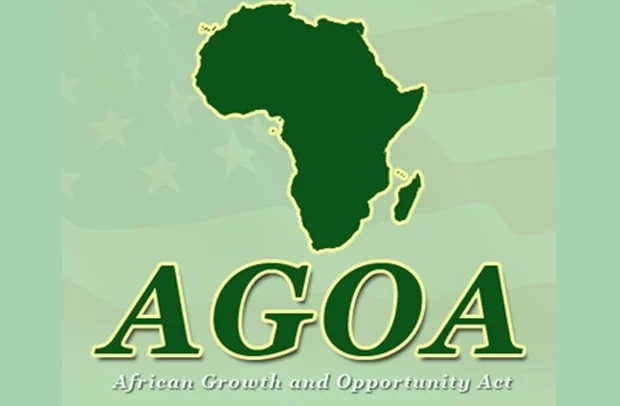
Yesterday, September 30, 2025, marked the end of an era for Ghanaian and African exporters as the African Growth and Opportunity Act (AGOA) officially expires after 25 years of duty-free access to the U.S. market.
For two decades, AGOA was more than a trade arrangement – it was a lifeline for businesses, a source of foreign exchange, and a catalyst for industrialisation.
Ghana’s cocoa derivatives, processed fruits, apparel, and other goods found a competitive footing in the United States largely because of the preferential access AGOA guaranteed.
But as the curtain falls, exporters now confront an uncertain terrain. From today, Ghanaian products entering the U.S. market could face tariffs of up to 15%, instantly eroding competitiveness and thinning already tight margins.
For companies that have built supply chains, financing structures, and employment models around AGOA preferences, the shift is seismic.
The expiration of AGOA is not merely a technical trade development; it is a defining moment for Ghana’s economic direction. The policy conversation must now move beyond lamenting the loss of duty-free access to shaping a forward-looking growth agenda. Exporters and policymakers alike must ask: What next?
For Ghana, this means accelerating efforts to diversify exports beyond raw materials, investing in value addition, and building stronger trade resilience. Overreliance on external preferences such as AGOA has proven precarious. The future will depend on how quickly the country can harness its strengths — competitive agriculture, a budding manufacturing sector, and a youthful labor force — to reposition for global markets.
New Opportunities In A Shifting Landscape
While the end of AGOA appears like a setback, it also opens new opportunities. Firstly, Ghanaian businesses can re-orient toward niche markets within Africa and beyond, where rising demand for processed foods, textiles, and digital services is less exposed to abrupt policy changes.
Secondly, exporters can explore bilateral deals with the U.S. or other partners, pressing for terms that reflect mutual interests rather than broad continental preferences.
Equally important, the expiration should sharpen Ghana’s focus on industrial policy. Incentives for agro-processing, light manufacturing, and technology-driven exports could reduce dependency on unilateral trade schemes. This shift requires tighter collaboration between government and private sector players to ensure that exporters are not left stranded in the new tariff regime.
AfCFTA: The Unseen Advantage
Perhaps the most underappreciated cushion for Ghana and its peers is the African Continental Free Trade Area (AfCFTA). While AGOA opened a window to the U.S., AfCFTA offers access to a far larger and closer market: 1.4 billion Africans with a combined GDP of $3.4 trillion.
By deepening regional integration, AfCFTA can absorb much of the shock from AGOA’s expiry. For Ghana, which hosts the AfCFTA Secretariat in Accra, this is an opportunity to lead by example. Streamlining border protocols, eliminating non-tariff barriers, and improving logistics infrastructure would allow Ghanaian exporters to pivot more effectively into African markets.
Intra-African trade currently accounts for just 15% of the continent’s commerce; if Ghana can capture even a small share of the growth potential, it could offset the losses from U.S. market access.
Moreover, AfCFTA provides a platform for industrial collaboration. Instead of competing as individual countries, African firms can develop regional value chains — for instance, Ghana processing cocoa and partnering with Nigeria’s packaging industry or Kenya’s logistics firms to deliver products at scale. Such cooperation could create a more resilient base of export-driven growth than AGOA ever allowed.
Did African leaders miss the moment?
One hard question lingers: did Africa’s leaders squander the opportunity to negotiate as a bloc? For years, African ambassadors in Washington lobbied separately for AGOA’s renewal, often focusing on country-specific advantages rather than continental strategy. The result was a fragmented approach that left the continent vulnerable when U.S. political winds shifted.
A united African front, leveraging the combined weight of AfCFTA, might have secured better and longer-lasting terms. Instead, Africa’s dependence on unilateral concessions left its exporters exposed to sudden reversals. The lesson is clear: Africa must speak with one voice in global trade negotiations. Without it, the continent risks being played off piecemeal in a world increasingly defined by blocs and mega-deals.
Charting Ghana’s Growth Agenda
So, where does Ghana go from here? Three priorities stand out.
Invest in value addition: Exporting raw cocoa beans and unprocessed fruits will not sustain long-term growth. Ghana must push aggressively into value chains that capture more revenue at home — from chocolate manufacturing to processed juices and textiles.
Strengthen regional integration: With AfCFTA on its doorstep, Ghana has no excuse not to maximize intra-African trade. Policies that reduce logistics costs, harmonize standards, and expand industrial zones will be key.
Negotiate smartly with global partners: The era of waiting for unilateral trade gifts must end. Ghana should pursue reciprocal, strategic agreements that protect its exporters and create predictable frameworks for long-term investment.
A Test Of Resilience
AGOA’s expiry yesterday is not just the end of a trade agreement. It is a wake-up call for Ghana and Africa to craft a growth path rooted in self-reliance, smart partnerships, and regional collaboration. For businesses that have thrived under AGOA, the adjustment will be painful, but it could also spark the innovation and resilience needed for the next chapter of Ghana’s trade story.
The question is no longer whether AGOA will be renewed. It is whether Ghana, and Africa at large, can seize this moment to pivot from dependence to independence in shaping their economic futures.
By Emmanuel Oppong
Read Full Story




















Facebook
Twitter
Pinterest
Instagram
Google+
YouTube
LinkedIn
RSS